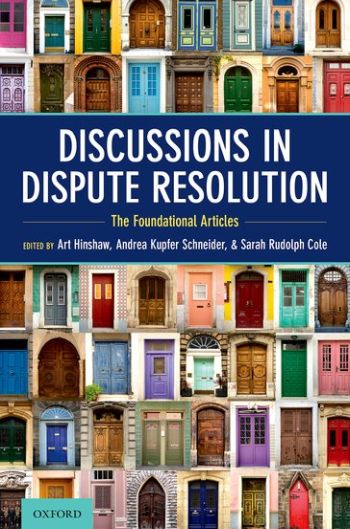
While arbitration was robust in colonial and early America, dispute resolution lost its footing to the court system as the United States grew into a bustling and burgeoning country. And while dispute resolution processes emerged briefly from time to time, they were dormant until the enactment of the Federal Arbitration Act and collective bargaining grew out of the labor movement. But it wasn't until 1976, when Frank Sander delivered his famous remarks at the Pound Conference, that the modern dispute resolution movement was born. By the year 2000, alternative dispute resolution had transformed from a populist rebellion against the judicial system to mainstream legal practice. Today, lawyers and retiring judges look to arbitration and mediation for a career pivot, and law schools train law students in the finer arts of dispute resolution practice as both providers and advocates.
Discussions in Dispute Resolution brings together the modern dispute resolution field's most influential commentaries in its first few decades and reflects on what makes these pieces so important. This book collects 16 foundational writings, four pieces from each of the field's primary subfields—negotiation, mediation, arbitration, and public policy. Each piece has four commenters who answer the question: why is this work a foundational piece in the dispute resolution field? The purpose in asking this simple question is fourfold: to hail the field's foundational generation and their work, to bring a fresh look at these articles, to engage the articles' original authors where possible, and to challenge the articles with the benefit of hindsight. Where possible, the book gives the authors of the original pieces the opportunity either to reflect on the piece itself or to respond to the other commenters.